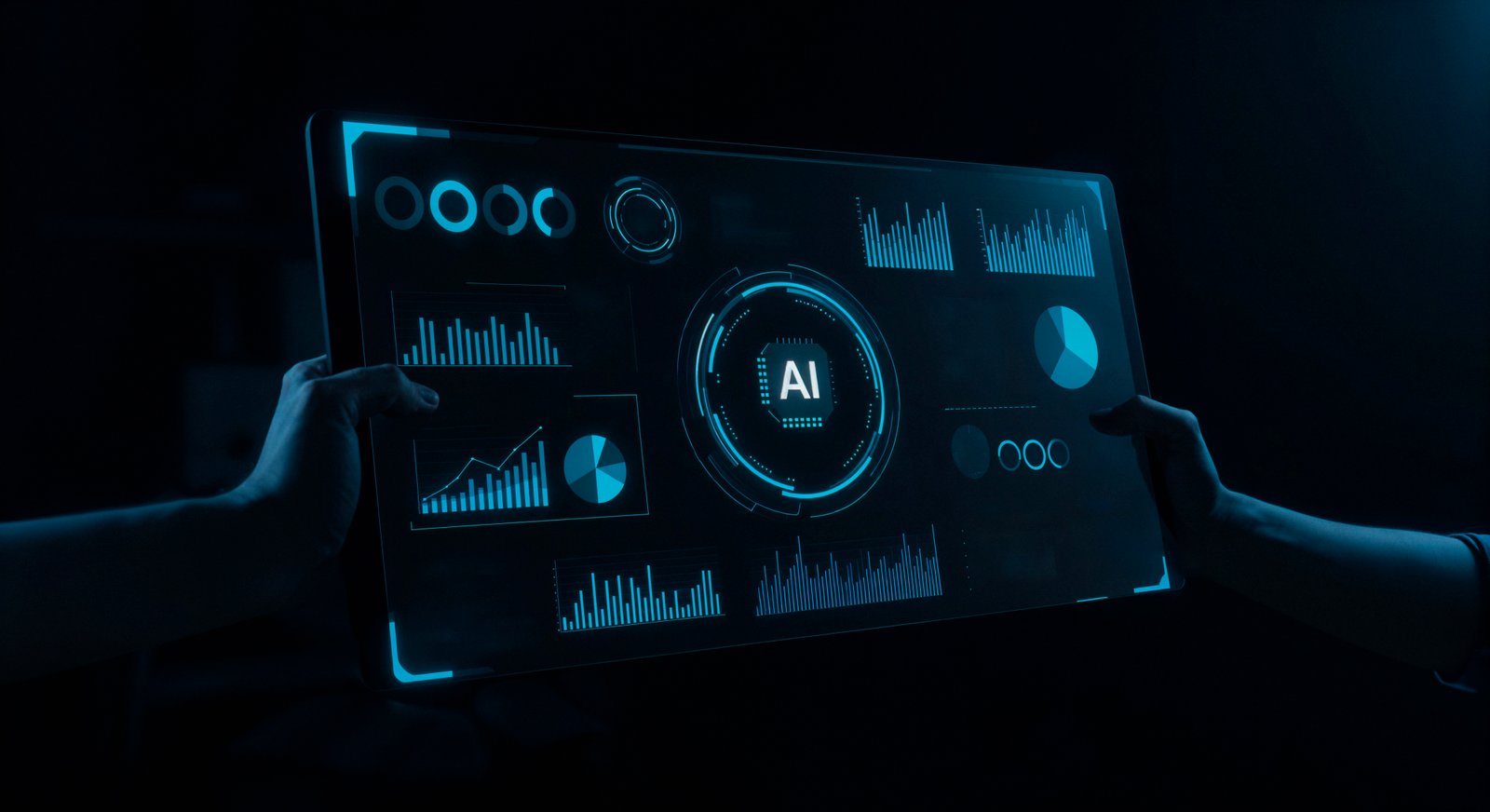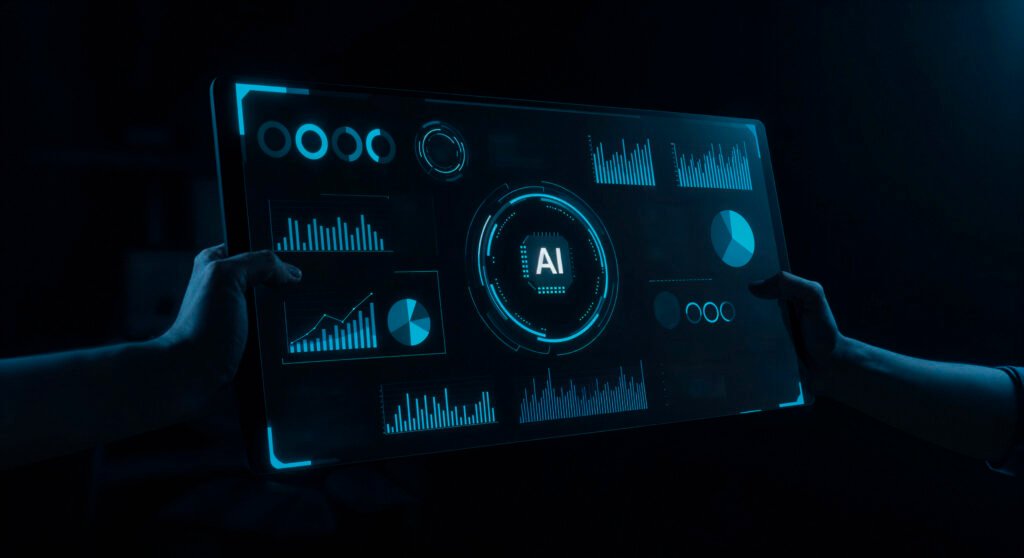


How AI and Automation Are Transforming Software Development
The software industry has always evolved with technology from mainframes to cloud computing, from static websites to mobile-first apps. But in recent years, Artificial Intelligence (AI) and Automation have become the most powerful drivers of change in software development.
Today, companies no longer just code applications manually; they use intelligent tools, machine learning models, and automated pipelines that accelerate development, reduce errors, and optimize efficiency. In fact, AI and automation are not only transforming how software is built but also redefining the role of developers in the entire lifecycle.
In this blog, we’ll explore how AI and automation are reshaping software development and what it means for businesses and developers in 2025 and beyond.
1. AI-Powered Code Generation

Writing clean, bug-free code takes time. AI-powered coding assistants like GitHub Copilot, Tabnine, and Amazon CodeWhisperer are helping developers generate entire code snippets from natural language prompts.
- Why it matters: Saves time and reduces repetitive coding work.
- Impact: Developers can focus more on problem-solving and design rather than boilerplate code.
- Example: A developer can describe a function in plain English, and AI tools instantly generate the required code in Python, JavaScript, or Java.
2. Automated Testing and Debugging
Testing is one of the most time-consuming stages of development. With AI-driven automated testing, software can identify bugs, suggest fixes, and even simulate thousands of test cases without human intervention.
- Why it matters: Speeds up release cycles and ensures higher-quality software.
- Impact: Reduces the cost of fixing post-release bugs, which is often 10x higher than fixing them during development.
- Example: Tools like Selenium, Testim, and Applitools use AI to detect UI inconsistencies and automate regression testing.
3. Smarter Project Management
AI tools are now being integrated into project management platforms to predict delivery timelines, identify risks, and allocate resources more effectively.
- Why it matters: Enhances productivity and avoids project delays.
- Impact: Project managers can make data-driven decisions instead of relying only on experience.
- Example: Jira and Monday.com use AI-powered analytics to forecast bottlenecks in development.
4. Automated DevOps (AIOps)
DevOps is the backbone of modern software delivery. With automation, tasks like continuous integration (CI), continuous deployment (CD), monitoring, and incident response are streamlined.
- Why it matters: Reduces downtime and accelerates software delivery.
- Impact: Developers spend less time managing infrastructure and more time coding.
- Example: Jenkins, CircleCI, and GitHub Actions automate build pipelines, while AI-powered AIOps tools like Dynatrace predict system failures before they occur.
5. AI in Code Review and Quality Assurance
Code reviews are essential for maintaining high-quality software. AI-based systems now automatically review pull requests, check for vulnerabilities, and ensure coding standards are met.
- Why it matters: Improves security and code quality.
- Impact: Reduces manual review efforts and catches issues earlier in the process.
- Example: Tools like DeepCode and Codacy scan repositories for bugs, security issues, and compliance violations.
6. Enhanced Cybersecurity with AI

As software grows in complexity, so do cyber threats. AI-based security systems can detect unusual patterns, block threats, and predict attacks before they happen.
- Why it matters: Protects businesses and customer data.
- Impact: Developers can integrate AI-driven threat detection into their applications.
- Example: AI-based security tools like Darktrace and CrowdStrike identify malware behavior in real-time.
7. Natural Language Processing (NLP) for Documentation
Creating and updating documentation is often neglected in development. AI-driven NLP tools can automatically generate documentation from code, commit messages, and user stories.
- Why it matters: Keeps documentation updated with minimal effort.
- Impact: Reduces confusion for future developers and accelerates onboarding.
- Example: Tools like Swimm and Mintlify automatically create and maintain developer documentation.
8. Automated Deployment and Scaling
With cloud platforms, deploying and scaling applications manually is no longer practical. AI and automation allow apps to auto-scale based on user demand.
- Why it matters: Saves costs and ensures seamless user experience.
- Impact: Applications can handle traffic spikes without downtime.
- Example: Kubernetes with AI-driven autoscaling adapts resources in real time.
9. Predictive Analytics in Development
AI can analyze past project data to predict potential challenges — such as missed deadlines, high bug rates, or inefficient workflows.
- Why it matters: Enables proactive problem-solving.
- Impact: Reduces risks and improves delivery success rates.
- Example: AI-powered analytics in platforms like GitLab highlight bottlenecks before they impact the project.
10. AI-Driven Personalization in Software
Beyond the development process, AI helps create personalized user experiences within software. From customized dashboards to predictive search, AI tailors the product to each user’s needs.
- Why it matters: Improves customer satisfaction and engagement.
- Impact: Businesses deliver smarter, more adaptive applications.
- Example: Netflix and Spotify use AI-driven algorithms to recommend personalized content.
The Future of Software Development with AI & Automation

AI and automation are not replacing developers — they are augmenting their capabilities. The future developer will act more as a problem-solver, strategist, and innovator, while AI handles repetitive coding, testing, and infrastructure tasks.
Businesses that embrace AI-powered tools in their software development process will benefit from:
- Faster product launches
- Reduced costs
- Higher software quality
- Stronger security
- Better customer experiences
Artificial Intelligence (AI) and Automation are reshaping the way businesses operate by reducing manual tasks, improving accuracy, and enabling smarter decision-making. From automated customer support to predictive data analysis, these technologies help organizations save time and resources while boosting overall efficiency. At Ashcorp Technologies, we specialize in delivering innovative software solutions that integrate AI and automation, empowering businesses to stay competitive in today’s fast-paced digital landscape.
Conclusion
AI and automation are transforming software development at every stage — from writing the first line of code to deploying applications at scale. Companies that integrate these technologies into their workflows will stay ahead in an increasingly competitive digital world.



